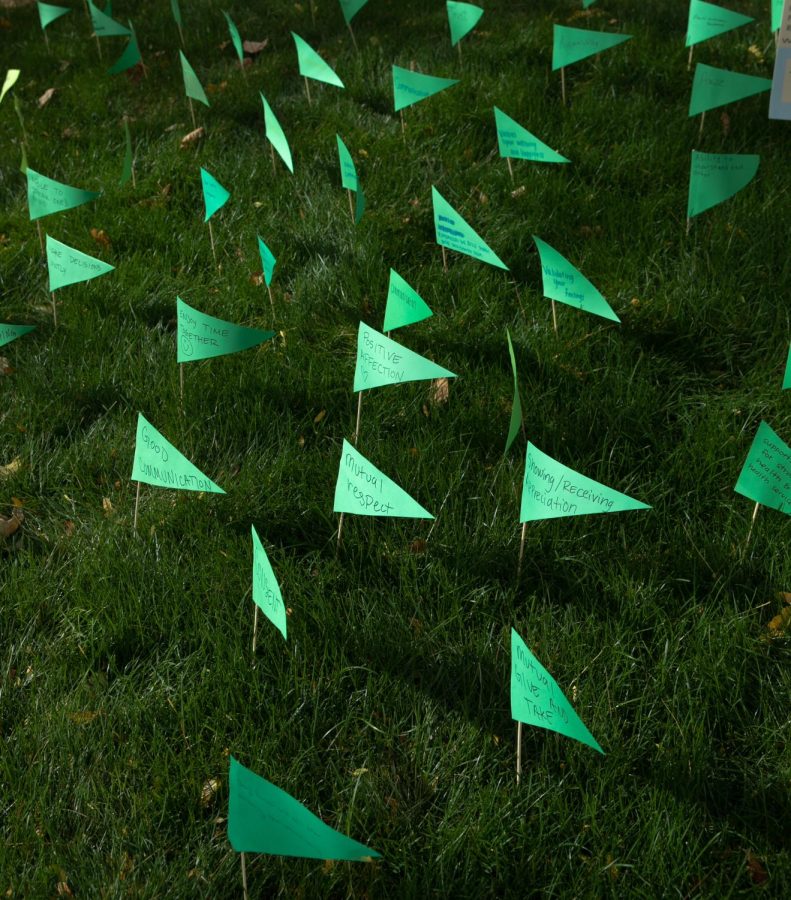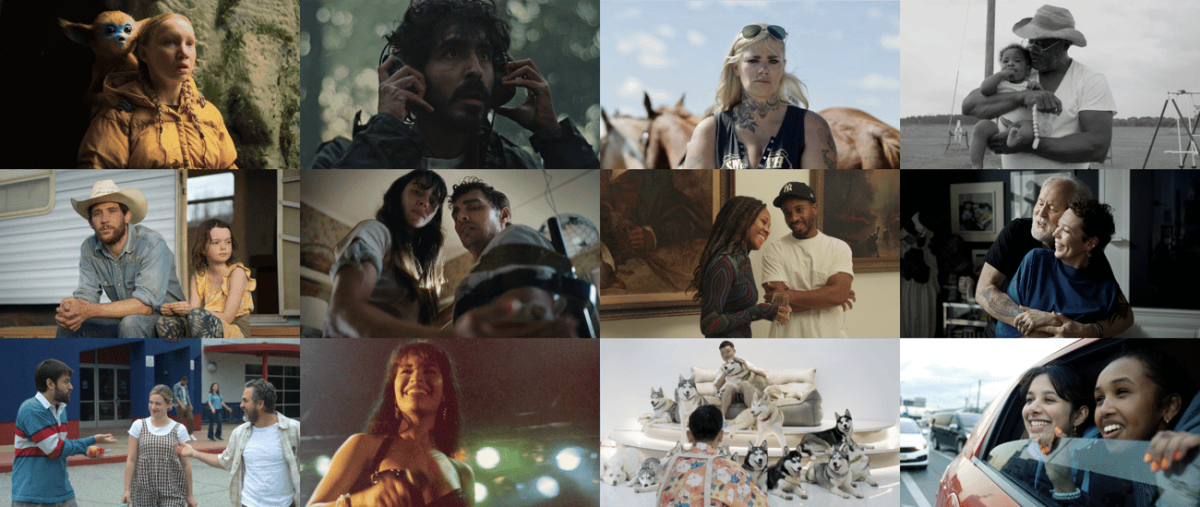The Red Flag Project: U’s Counseling Center Spreads Awareness of Interpersonal Violence
U Counseling Center displays green flags with students’ relationship expectations on Oct. 28, 2021. (Photo by Rachel Rydalch | The Daily Utah Chronicle)
November 24, 2021
October is Domestic Violence Awareness Month. At the University of Utah, this is a time to support both survivors of interpersonal violence and secondary survivors, those who are “affected by violence against a loved one.”
On Oct. 27, the lawn of the A. Ray Olpin Student Union building at the U was filled with red and green flags as part of the U Counseling Center’s Red Flag Project.
“The idea with the Red Flag Project was really to create a campus-wide dialogue on the issues of interpersonal violence,” said U Counseling Center’s Co-Coordinator for Outreach, Christina LeCluyse. “And being able to have students, staff [and] faculty engaged in a conversation about understanding the signs of an abusive relationship [and] the signs of a healthy relationship.”
Red and green flags decorated the lawn, with phrases such as “Mutual trust with each other” and “Patience” written on the green flags, representing positive characteristics a relationship could have, and “Belittling” and “Your needs go unmet or unnoticed” written on the red flags, representing possible negative characteristics in a relationship.
The project aimed to raise awareness about interpersonal violence, the term typically used on a collegiate level.
“Even though, nationally, we call it Domestic Violence Awareness Month, on a college-level we often refer to it a little bit more as interpersonal violence,” LeCluyse said. “Domestic violence, a lot of people associate it with married couples. Sometimes that can be dismissive of abusive behaviors that are occurring in dating relationships or friendships.”
The project was first executed in 2019, but canceled in 2020 due to the state of the pandemic. With this being the second iteration of the Red Flag Project, the Counseling Center included a new PowerPoint presentation they sent to organizations across campus to spread awareness.
LeCluyse said the presentation explains the purpose of the project and features interactive activities.
“There’s a little explanation, for example, of ten signs of healthy and ten signs of unhealthy relationships,” LeCluyse said. “Then there’s a jeopardy game that you can play. It’s basically scenarios describing the dynamic between two people. The idea is to see if the audience can identify signs of healthy versus unhealthy relationships.”
The PowerPoint presentation is a step made by the Counseling Center to move their services in a more virtual direction.
“Prior to the pandemic, we didn’t do a ton of things virtually,” LeCluyse said. “We were trying to go out and do the presentations to student organizations, classes etc. With scheduling, that feasibility makes it pretty difficult. That is why I wanted to design this PowerPoint.”
To begin the project, the Counseling Center reached out to different organizations across campus to gather volunteers to make the red and green flags.
“Basically [the volunteers were] anybody who was interested,” LeCluyse said. “We have wonderful partners like the Women’s Resource Center, the Center for Student Wellness [and] the Student Life Center.”
The Counseling Center also reached out to sororities and different classes to create the flags, including a class for first-generation scholars.
“I took this project seriously because it’s a topic I am very passionate about,” said Xochitl Juarez, Red Flag Project volunteer and mentor for first-generation scholars, via email. “As a first-generation mentor for first-generation scholars, I took it upon myself to get first-generation students involved in this project by encouraging them to talk about this difficult topic.”
Juarez said the process of making the flags was very easy and praised the project for raising awareness of a difficult topic.
“This [project] got students to think about the topic and in writing it down they contributed to the awareness of healthy relationships,” Juarez said. “We delivered packets to many departments on campus. It was fun to see the guys getting involved. I didn’t think many would want to participate in this project, but they did so very willingly. The topic itself wasn’t very fun to discuss but I believe it’s a very important one to have.”
Juarez said she hopes to see the project continue.
“The project is important, and [I] would like to see it become even bigger next year,” Juarez said. “This topic affects many cultures and bringing awareness helps put light on the issue, which in turn causes more people to become interested and contribute to making a change by getting allies and advocates.”
Students are encouraged to visit the Center for Student Wellness website for more information about Domestic Violence Awareness Month.








